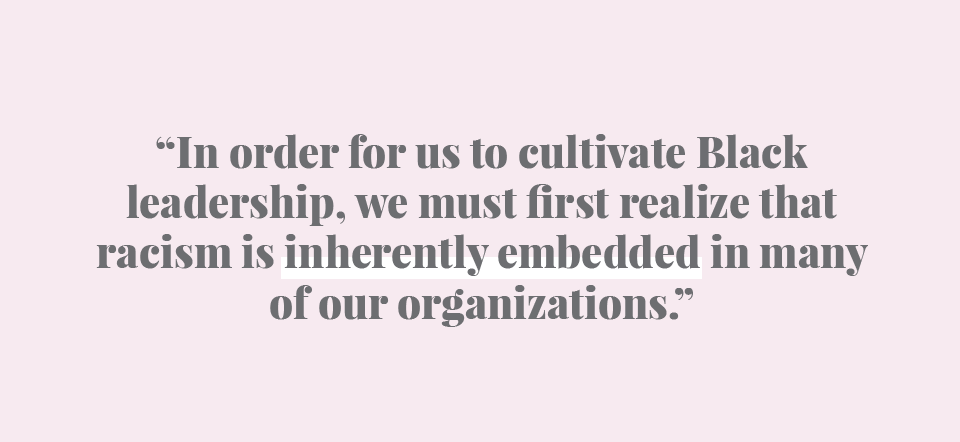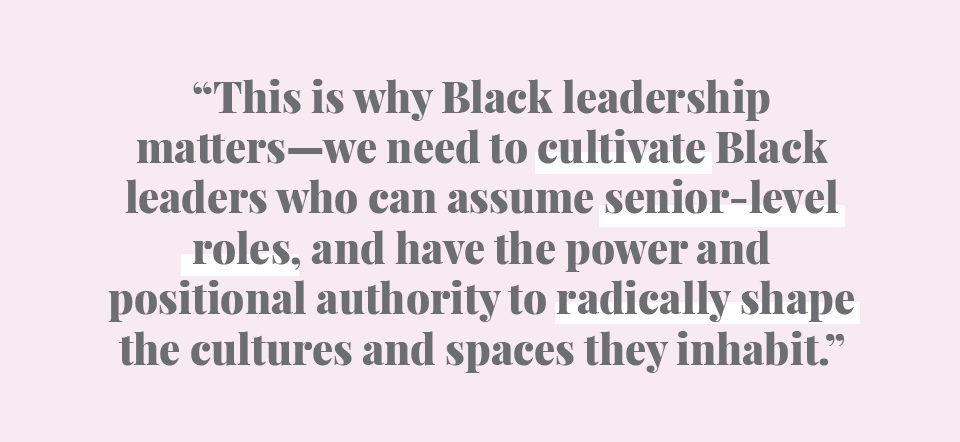As someone who has spent most of her young to mid-adult life navigating predominately white workplaces, I have faced a plethora of contradictions regarding my identity and my presence.
As a woman of color, I was raised to take pride in my identity and accomplishments and enter spaces with confidence, in spite of the societal perception that I was undeserving of my stature. But as I
navigate predominately white, and often hostile, spaces, I am reminded everyday of how precarious my presence is.
I am reminded that I must still prove how much I belong in certain spaces because my intelligence and qualifications are constantly being interrogated. While many workplaces may
say they value diversity and authenticity, we as Black professionals understand that this is simply only a half-truth.
What it's Really Like for Black Women in the Workplace
Black Hair is Still Contentious at Work
Reports show that Black women with natural hairstyles including curly afros, twists, or braids are less likely to get job interviews than white women or Black women with straightened hair. Many Black women report mincing their words or silencing their voices as a way to appear diplomatic and non-confrontational in the workplace because if a Black woman expresses opposition,
she is viewed as angry and unlikeable.
Black Women are Oversexualized
Black women are also reminded daily of how their bodies in the workplace are being policed and oversexualized. Demetria Oblior, a Black woman, and a WFAA 8 Dallas Traffic reporter reported receiving hateful emails about her hair, and a Facebook post from a viewer criticized her style of dress by saying she’s too voluptuous a woman to fit into such small dresses.
When your life and the way you present yourself is placed under a microscope, it can cause stress, burnout, and disengagement for many Black professionals. We learn to suppress our authenticity for likeability and the comfortability of white people.
We also realize that very little can be done early on to radically change our work environments to ensure they are more inclusive of our identities and our culture. For many entry- and mid-level Black professionals, we often lack the positional authority and influence to radically change our work cultures—and many Black professionals would agree that it isn’t our responsibility to change the
oppressive and exclusionary practices of our workplaces.
This is why
Black leadership matters—we need to cultivate Black leaders who can assume senior-level roles, and have the power and positional authority to shape the cultures and spaces they inhabit.
The Leadership Gap: Why Black Leadership is So Important
Corporate America has failed to diversify its top executives and senior leaders—and many Black professionals are trapped in middle management without opportunities to rise above and be promoted.
Helps Close the Income Gap
This racial divide also has implications for widening the income gap between Black and white professionals. Diversity and inclusion isn’t simply a numbers game—it has implications for a corporation’s bottom line. As the United States continues to diversify, corporations will need to adapt their practices in order to serve an ever-changing and evolving market.
More Empathy = More Innovation
In many ways, Black leaders in the non-profit sector help alleviate the social and cultural gap that exists between many
predominately white nonprofits and the minority communities they serve. They serve as bridge builders and play a critical role in bridging the gap with the ability to transverse through multi-cultural and multilingual communities.
Witnessing Upward Trajectory Creates Real Viability
Black leadership among senior-level roles also helps in recruiting and retaining people of color in mid-level and entry-level roles. Studies show that when
people of color see people who look like them in positions of power, it increases their engagement and persistence, and so we can expect this same trend to be apparent in our workplaces.
If mid-level and entry-level employees see Black people in positions of authority, they also begin to believe that an upward path or trajectory at the company is a viable option for them. Senior Black leaders create and help
promote the visibility of the leadership pipeline for other Black professionals.
Creating Safe Spaces for Expression + Authenticity
Black leaders also play a critical role in creating safe spaces for other Black employees to
express their authenticity, cultivate their talents, and seek refuge from predominately white spaces.
I remember after the death of George Floyd, I was terrified, sad, and depressed—I was exhausted at the thought of having to show up unbothered and unaffected by police brutality and needing to carry a professional disposition in the midst of racist turmoil.
The Power to Bring Your Full Self to Work
Many Black employees like myself desired a space where we could express our authentic emotions without the guise of professionalism—we desired a space where people would listen, feel our pain, and show empathy.
In many predominately white spaces, conversations about race remain socially taboo, but Black leaders who are conscious of public events play a critical role in bringing these conversations to the forefront and ensuring that employees of color have spaces where
they can bring their whole and full selves.
The Unique Value Black Leaders Bring
Black leaders bring immense value to the workplace, and play a pivotal role in changing our workplace culture—our insight and cultural experiences allow us to bridge the gap and bring innovation and creativity to the forefront. If Black leaders are hired, promoted, paid well, and respected—the possibilities are limitless.
Recognizing that Racism is Deeply Embedded
Racism is embedded in our institutions. This means white leaders must take the lead role in dismantling policies and practices that disadvantaged minorities and do some deep introspection about their own biases and beliefs.
In order to understand how racism is impacting the lives of people of color,
white organizations must begin to take an audit of the differences in perception of racism among people of color and white employees. In order for us to cultivate Black leadership, we must first realize that racism is inherently embedded in many of our organizations.
Going Forward—My Own Inspiration Points
As I continue to climb the professional ladder, I remain inspired by the
senior Black female leaders in my organization who are able to express their authenticity, own their voice and their power, and be unapologetically true to themselves. The bravery they show in wearing cultural clothing and embracing their natural hair empowers and inspires me to tap into my own authenticity.
I am forced to reckon with how standards of professionalism are both Eurocentric and stifling—it motivates me to define my own standards and cultivate my own place and space. While we will still encounter microaggressions and impediments to success—the presence of Black leadership is pivotal to diversifying the leadership pipeline and creating
more inclusive workplaces.














